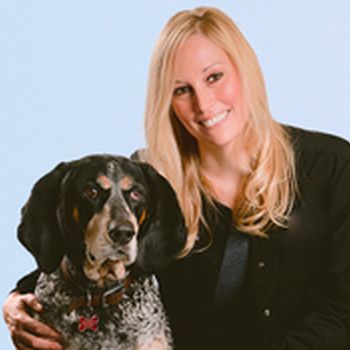

Setting Boundaries in Veterinary Medicine: Why Your Well-Being Depends on It
Setting boundaries can be a challenge in the veterinary field. You may squeeze one more patient into a tight schedule, work extra shifts because the team needs your help, or provide free consultations when your clients have financial concerns, all because you feel pressured to do your job well. You may find yourself always saying "yes" because that is what is expected of you, when in reality it's not in your own best interest. If you're feeling overwhelmed and stretched to the limit, perhaps it's time to take a step back, reassess, and put some boundaries into place.
Learning to Say No
Once you've acknowledged that you need some boundaries, it's time to start communicating these needs to others. Sometimes this means saying "no" to things you previously agreed to, so that you can put your own needs first. If your practice is already booked solid with appointments, limit the number of new clients you accept. If your personal life is suffering and you're missing out on quality time with your family, tell your coworkers that you can't work that extra shift. If the thought of performing a euthanasia procedure for behavioral reasons or owner convenience makes you uneasy, voice those concerns and say that you will not do it.

Allocating and Delegating
Veterinarians do it all: medicine, surgery, therapy, financial consulting, team building, leadership, management, and more.
An American Veterinary Medical Association analysis in 2018 found that 42% of veterinarians were owners of their practice, and with business ownership comes a plethora of duties not directly related to patient care. But even if you do not own the practice, you are likely to face responsibilities during your workday that include everything from financial counseling for clients to team leadership.
If you spend too much time discussing finances with clients rather than focusing on patient care, consider delegating this task to another non-medical team member. (By avoiding the financial discussion, not only can you focus more intently on your veterinary work, but your client will appreciate your dedication to their pet's health and listen more intently when you discuss their medical options.)
If you spend hours writing your records, enlist the help of another team member to help document medical information so that the task doesn't fall entirely on your shoulders at the end of an already long day.
If you are caught up with a complicated case or unexpected surgery, reach out to your fellow veterinarians and see if they can help bear a bit of the load for a while. Delegating and allocating will allow you to stay focused on your primary job and continue to provide excellent care for your patients.
Go from "AHHH!" to "Ahhh." Read how fellow veterinarians are finding focus in our latest guide.
Unplugging and Walking Away
Boundaries are not only important in the workplace but at home, as well. In today's world of constant accessibility, you run the risk of never really having time off. You check emails and reply to client calls when you're off-duty. You take your records home with you after a long shift. You provide free consultations to friends and family whenever you can.
All of these little tasks and obligations can add up over time and negatively impact your health and well-being, so it's important to delegate real time away from the job. Here some ideas on how to do so:
- Turn your phone off and go for a walk.
- Finish records at work rather than taking them home with you over the weekend.
- Avoid checking work emails over the weekend.
- Politely tell that classmate from high school that you will not provide free medical advice over the phone.
By allowing yourself real time off, you'll be better equipped for the challenges of the day when you do return to work.
Utilizing Vacation Time
Along those same lines, it's also important to utilize vacation time. Americans, in general, aren't good at this. The U.S. Travel Association revealed in a study that 768 million days of paid time off, a record number, were left unused. Of these days, 236 were forfeited completely.
If you're feeling weighed down by your job, a vacation may be just what you need to reset, so don't let those vacation days go to waste! The work will always be there when you return, but time away from your "real" life can help you to recharge, remind you to live in the present, and allow you to return to your job well-rested and ready to tackle the tasks in front of you.
Preparing for Pushback
Boundaries can be difficult to make and maintain, in part because the people facing these new boundaries will constantly try to cross them. If your boundaries have been murky or non-existent in the past, it's only natural for those around you to show some resistance when suddenly faced with more clearly defined limitations. Despite how difficult it might be at first, it is vital to stand firm and remember that pushback — from family, friends, coworkers, and clients — is normal, acceptable and a clear indication that you are on the right track.
The veterinary profession has evolved into one that takes advantage of its most valuable asset: you. As caseloads steadily rise, you take on more cases. As the demand for veterinarians grows, you add more hours to your day to compensate. As clients expect better and more accessible healthcare for their pets, you reach for the stars to give them what they need. The boundaries grow hazier, and your well-being may suffer as a result. This culture of self-sacrifice for the sake of the profession is not sustainable, and the first step toward a healthier, happier livelihood is to start setting some boundaries.







